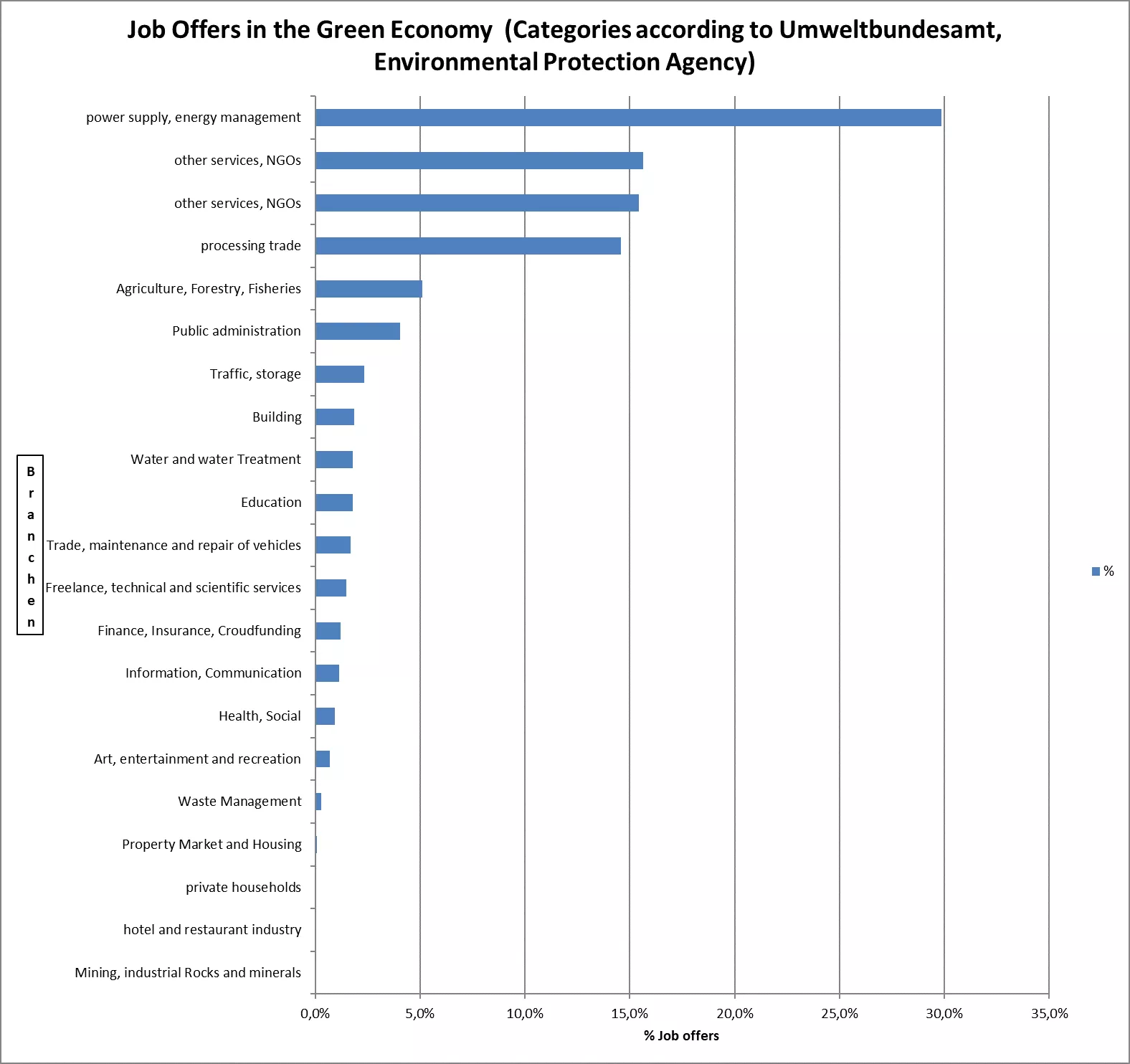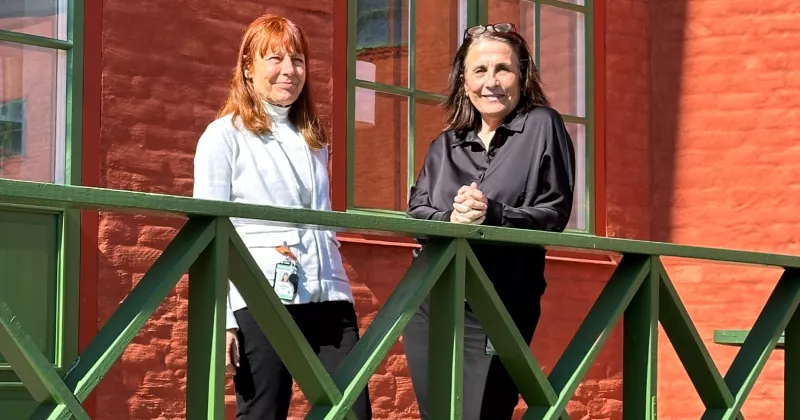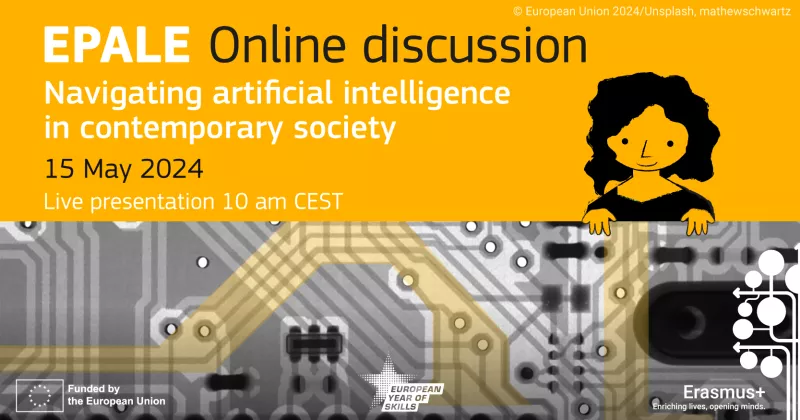EUBILD-UNAKLIM: Continuing adult education in environmental, nature and climate protection
Reading time approximatley 7 minutes - read, like, comment!
EUBILD UNAKLIM what is that?
EUBILD UNAKLIM is a cross-border hands-on training concept in environmental, nature and climate protection. Five partners from four countries (Poland, Romania, Hungary and Germany) set out to jointly develop this concept for unemployed people in order to help them gain new perspectives in a promising market.
Cross-border cooperation plays an important role in this. The project partners view European environmental education as a contribution to shaping sustainable development also in the fields of economy, ecology, politics, and transport as well as in the European society as a whole by raising the citizens’ awareness for related topics.
The aim of EUBILD UNAKLIM is to create a continuing education course in the green sector with international aspects in order to give interested people a perspective and opportunities for cross-border mobility.
The course materials are available in 5 languages (German, Polish, Hungarian, Romanian and English) and can be found barrier-free at:
- https://projekt-eubild.jimdo.com/,
- https://classroom.google.com/c/Mjg0Mjg3ODU5ODZa/m/MzA5MzI5MjIwMTha/deta… und
- https://classroom.google.com/c/Mjg0Mjg3ODU5ODZa.
The project partners have backgrounds in universities, scientific institutes and non-profit associations and represent a broad spectrum of knowledge in the environmental field.
What are the tasks of the EUBILD UNAKLIM project?
The Erasmus+ project EUBILD UNAKLIM initially set itself the task of taking stock of the market for green jobs and identifying training needs in order to create a tailor-made training offer.
Task 1: Study on jobs in the green economy
There are numerous online job platforms in Germany, which of course also list job offers in the green economy. However, it is incredibly difficult to conduct a search via keywords and exclude double entries. Since a differentiated and electronically supported search over a longer period of time exceeded the time frame and financial scope of the study, platforms which are specialized in green jobs were filtered. Overall, 32 such platforms were scanned from mid-November 2016 to mid-February 2017. Among these, the job platform "greenjobs.de" was used for more in-depth analysis. The partner countries carried out similar studies.
Result: 1,406 green jobs were published from November 2016 to February 2017.

Figure 1: Wanted jobs in the green sector
|
The following jobs were offered most in the green sector: Technicians, electricians, mechanics, laboratory technicians and network supervisors are at the top with almost 23% of all advertised jobs, followed by project managers and directors with almost 13%, administrative (assistance, clerical staff) and scientific staff (renewable energies) make up 6% of the demand. Interior and landscape designers, jobs in geographic information systems GIS, landscape architects, marketing, acquisition and sellers follow with 4% each, almost 4% being accounted for by service, sales and IT specialists. Further down the list (descending from about 3% to 1.5%) biologists, foresters, landscape ecologists, engineers, QM representatives, education consultants, civil engineers and food technicians follow. The last positions, making up less than 1%, are site managers, environmental planning, agricultural scientists, florists, gardeners, project engineers, lawyers, development workers, geologists and hydrologists. |
Task 2: Questionnaire on "Employers' wishes for employees in the green sector" - and "What do training providers offer in the green sector?"
A questionnaire was conducted in German, Polish, Romanian and Hungarian as well as in English, from January 2017 to the end of March 2017. Questions were asked about desirable knowledge, personnel acquisition, the need for further training, key words and assessments on job development in the green sector. The questionnaire addressed employers on the one hand and educational institutions and their funding agencies on the other. More than 400 addresses were contacted per country, a total of more than 1,600.
Survey Results:
The following hypotheses proved to be true:
- Everyone needs qualifications in the field of environment, nature and climate protection
- Smaller institutions are more likely to consider non-formal degrees than large ones
- Aspects of environment, nature and climate protection play a role in institutions of all sizes
- The bigger the company, the more need for "green" knowledge
- There is a lack of training offers in environment, nature and climate protection
- The bigger the company, the less important is the topic "project application"
- The larger the company, the less important are issues around environment, nature and climate protection
Surprisingly, there were some strong differences in the assessment of employers compared to training and financing institutions:
- Importance of continuing education and training in general: is rated significantly higher by employers than by educational institutions. Hungary has a particularly large gap.
- Completion of an officially certified course / importance of formal qualification: It is clearly more important to employers than to educational institutions/financing bodies.
- How important is an internship? It is clearly more important to employers than to educational institutions. In Germany and Hungary this opinion is very pronounced, in Poland and Romania less so.
- Cross-cutting knowledge and project management is very important for both groups.
- Self-management is much less important to employers than to educational institutions.
- Teamwork: is important for both groups. Only Polish employers value teamwork much less than the training providers.
- Leadership: Similar assessments by employers and training providers.
- Presentation techniques: are much more important to employers than to educational institutions. This aspect is particularly important to the Hungarian partners.
- Languages are less important to German employers than to education providers, the same counts for Hungary.
- Internationality is much more important to employers than to educational institutions.
- Cross-sectoral problem-solving skills are much more important to employers than to educational institutions. This is even more pronounced in Poland and Hungary.
- Writing funding applications is more important to employers than it is to educational institutions, especially in Germany and Hungary.
- Both officially recognised and internal certificates are welcomed by employers.
This means that there is a need for further training on the part of education providers:
- Cross-sectoral problem solutions,
- Internationality,
- Presentation techniques,
- More and international internships
- Writing grant applications.

Fig. 2: Comparison between employers and funding agencies: (Legend: large blue box: important, small brown box: less important)
Task 3: EUBILD-UNAKLIM continuing education concept
We offer trainings on topics that are particularly in demand among employers. These are the red arrows in Figure 3. We provide information on topics such as renewable energy, nature conservation, waste management, geology and soil science, environmental law and useful software such as MS Office and Geographic Information Systems (GIS). We also offer training in project management and applied project management. An internship rounds up the course.

Fig. 3: Approach of the EUBILD-UNAKLIM continuing education concept
Freely available teaching materials

All materials produced by EUBILD UNAKLIM are freely accessible via the project website, including the links to the online platform. A link on the Ubb website leads directly to the project website. There are no access restrictions. All materials can also be requested directly from Ubb e.V. (https://projekt-eubild.jimdo.com/).
Our course can be found on the e-Learning platform.
The EUBILD team
We are a young, curious team from universities, youth organisations, science and NGOs. We are all interested in green jobs and environmentally friendly, sustainable living. We come from Germany, Poland, Hungary and Romania. We have held many meetings, workshops and conferences and developed the presented concept together. We want to implement it in our countries and give many people new impulses to reconcile work and life in the green sector.
About the author: Dr. Susanne Rahner teaches environmental management, project management, process management since 1999. She is involved in numerous national and international projects.
Image rights: © UBB e.V.
Kommentar
Sehr spannend
- Logga in eller registrera dig för att kunna kommentera





Sehr toll